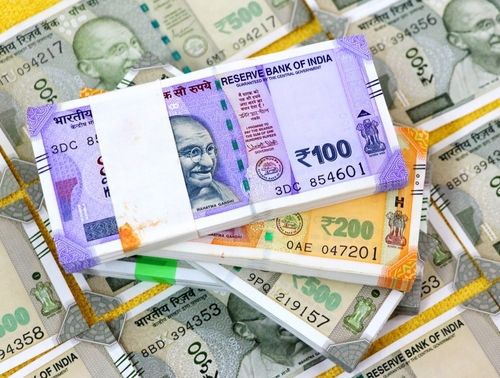Understanding the Grace Period in Term Insurance Policies
Written by Upstox Desk
Published on July 15, 2025 | 5 min read

SUMMARY
Harish, a 24-year-old marketing professional, loves anime, rap music, and oversized fashion. He earns well and subscribes to multiple OTT platforms, takes cabs, and orders food online. Living alone, he pays bills only when notified, often forgetting commitments like his term insurance premium. With spam calls, work emails, and social media distractions, missing a payment seemed inevitable. He feared penalties or cancellation until he discovered the grace period in term insurance policies.
Insurance companies typically offer a designated grace period for your term insurance policy. The grace period is a predefined window of time provided by insurers, allowing policyholders to pay their overdue premiums without the risk of policy lapse. For policyholders in India, where unforeseen financial challenges can arise, understanding this feature is crucial to maintaining uninterrupted life coverage and safeguarding loved ones.
Let us understand the concept of the grace period and how it can be a vital aspect of your term insurance policy.
Understanding Grace Period in Term Insurance Policies
Insurance companies typically provide a designated timeframe after the due date, during which you can pay overdue premiums without the policy lapsing or applying any penalties (depending on terms and conditions). This means that your term insurance cover shall be active even after missing a premium payment on the due date.
Barring monthly premiums, where the grace period is 15 days, insurance companies usually allow a 30-day grace period to pay outstanding premiums. It is, however, critical to check with the respective insurer about such a facility and the exact grace period offered
Importance of Grace Period in Term Insurance
If you were able to relate to the example cited at the beginning of the blog, you must understand that there are way too many things on everybody’s plates now. Missing out on payments and deadlines is common, and the insurers understand and acknowledge this. Here is why a grace period is important:
-
It ensures no immediate policy lapse after missing a single payment. This gives policyholders an extra bit of freedom to manage their finances effectively.
-
Even when the premium is missed, the policyholder continues enjoying all the perks of the policy (including life cover and add-ons). Hence, if anything happens during the prescribed grace period, the insurer will typically cover it with the promised sum assured.
-
Any claims made during the grace period are processed duly by the insurer. In a few cases, the insurance company might deduct the amount of unpaid premium from the final payment.
-
It provides the policyholder an extra layer of peace of mind through a buffer to take care of missed premiums.
Consequences of Not Paying Within the Grace Period
So, you have a grace period of 15-30 days once you miss the due date (depending on your policy payment term). Now, what happens if you do not pay the premium within the grace period as well? This can happen if you are undergoing financial hardship, health issues or any other family-related troubles.
The most immediate consequence is that the policy lapses, leading to the termination of coverage. This means that the insured no longer has the financial protection that the policy provided, leaving their family vulnerable in case of unforeseen events like the policyholder’s demise.
You might also lose all the paid premiums. For example, you had paid premiums continuously for five years and failed to pay in the sixth year. There is a chance that the entire money might be forfeited. It is important to discuss this in advance with your insurer and prepare the terms and conditions for missing premiums.
Some insurers offer policy revival options within a specified timeframe after the lapse. However, reviving a policy often involves extra costs such as late fees, interest, or penalties. Moreover, policyholders may be required to undergo fresh medical examinations to reinstate their coverage, adding inconvenience and potential risk of rejection.
Tips to Avoid Missing Premium Payments
Here are a few tips you can consider to avoid any such circumstances:
-
Setting up automatic payments through credit cards or banks ensures you do not miss out on periodic payments.
-
You can set up digital reminders, which cannot be confused with emails or texts from insurance companies (often labeled as spam by detectors).
-
You can realign your payments with an income schedule, such as with the date of crediting salary.
-
Consider having longer payment periods, such as quarterly, semiannual, or annual.
-
Having a separate fund is also a good practice.
Summing up
It is important to acknowledge that the grace period is a facility that should be used only in emergencies. Postponing your insurance premiums and depending too much on the grace period might not be the correct way of managing personal finances, as it can lead to defaults over a prolonged period. Staying proactive regarding your payouts is the key here.
You can avoid policy lapses by leveraging tools like reminders or automatic payments. Always review your policy’s terms and conditions to stay informed and ensure your financial protection remains intact.
FAQs
What happens if I miss paying my term insurance premium?
If you miss paying your term insurance premium, your insurer provides a grace period (15-30 days) to make the payment without the policy lapsing.
Can I claim insurance benefits during the grace period?
Yes, most insurers allow claims during the grace period, but they may deduct the unpaid premium from the final payout.
What happens if the grace period expires without payment?
If the grace period expires, your policy lapses, and you lose all benefits, including coverage and previously paid premiums, unless revival options are available.
How can I avoid missing term insurance premium payments?
You can avoid missing payments by setting up automatic payments, using reminders, aligning due dates with your income schedule, or opting for longer payment intervals.
About Author
Upstox Desk
Upstox Desk
Team of expert writers dedicated to providing insightful and comprehensive coverage on stock markets, economic trends, commodities, business developments, and personal finance. With a passion for delivering valuable information, the team strives to keep readers informed about the latest trends and developments in the financial world.
Read more from UpstoxUpstox is a leading Indian financial services company that offers online trading and investment services in stocks, commodities, currencies, mutual funds, and more. Founded in 2009 and headquartered in Mumbai, Upstox is backed by prominent investors including Ratan Tata, Tiger Global, and Kalaari Capital. It operates under RKSV Securities and is registered with SEBI, NSE, BSE, and other regulatory bodies, ensuring secure and compliant trading experiences.

























